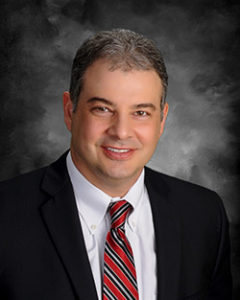By James S. Rizzo, Esq.*
“Sometimes the poorest man leaves his children the richest inheritance.”
– Ruth E. Wenkel
 Transferring ownership of property to children as people age, while retaining the right to live at the property for the rest of one’s life (in legal jargon, “retaining a life estate”), is a common practice but one fraught with problems. The logic is the property will go to the kids when you die anyway, so why not just do it now? Here are several potential dangers to consider:
Transferring ownership of property to children as people age, while retaining the right to live at the property for the rest of one’s life (in legal jargon, “retaining a life estate”), is a common practice but one fraught with problems. The logic is the property will go to the kids when you die anyway, so why not just do it now? Here are several potential dangers to consider:
1. If you later require nursing home care and apply for Medicaid, you risk the potential of having to unwind the transfer if it was done within the five (5) year Medicaid “look back period”. While Medicaid rules are complex, it is important to know that in order to have Medicaid cover any portion of nursing home costs, major asset transfers within five years of entering a nursing home generally need to be reported. If real estate is sold below market value or gifted to children, you could be made to private pay the full amount of nursing home costs equal to the fair market value of the transfer (i.e., the “penalty amount).
2. Death. If one or all of your children die while you are still living at the property, their respective estates will now be the owner of that share of the property. That child’s share may now be clouded by probate or estate problems, or the property may pass into the hands of a son/daughter-in-law by inheritance, contrary to your intentions.
3. Divorce. If one of your children is going through a divorce, the value of his/her ownership interest may have to be reported and can be the subject of a divorce proceeding. The financial upheaval of divorce may force that child to sell his/her interest in the property to a third party. While your ability to remain in the property under a properly worded life estate interest should not be disturbed, generally, the thought of someone other than your child owning the property during your lifetime can create a great deal of uncertainty and stress.
4. Tax and Capital Gains consequences. While a tax professional should be consulted for any large transfer of assets, generally, a transfer of property to your children during your lifetime can have the unintended consequence of imposing a capital gains tax on the children when they sell the property. If a trust or Will is properly designed, the capital gains tax can be avoided in many circumstances if property is inherited (transferred to children post-death).
5. Debt. What if your children have judgments against them or file bankruptcy? If one of your children has financial problems, any liens or judgments against them can attach to property held in their name. This can create discord among siblings and will generally delay and inhibit any future sale of the property until all such liens and judgments are satisfied. If a child declares bankruptcy, his/her ownership percentage generally needs to be reported and resolved in accordance with the bankruptcy action, much like a divorce.
6. Disability. If your child is receiving governmental or disability benefits, or becomes disabled while owning the property, this can create a host of unintended consequences. If a child is responsible for the upkeep of the property, it will need to be determined how the property will be maintained going forward. If the now disabled child had agreed to pay mortgage or other costs, those expenses will need to be resolved to avoid the judgment and lien problems mentioned above.
7. Disease or Addiction. The adverse consequences of physical disease are many but what if your child has the “disease” of drug, alcohol or gambling addiction? The financial problems and emotional turmoil of those situations can have long lasting and devastating consequences which tie directly into most all the categories outlined in this article.
8. Discord. Disagreement and antagonism among family members does not discriminate based on race, wealth or how large or small a family is. Arguments often arise among children co-owning a property together and/or between the parent(s) living at the property. It is axiomatic that a legal dispute among family members is something to be avoided if at all possible.
What is the better alternative if your intention is to have your children own your property after you die? A well-crafted estate plan, especially one incorporating an irrevocable Medicaid trust, can address and avoid the above situations while allowing you to live in and retain control of the property. Such a plan can also allow you to retain the NYS STAR tax exemption and any other exemptions for your primary residence. An attorney concentrating in estate planning should be able to provide guidance and options to best suit your needs.
*This article is for informational purposes only and should not be construed as legal advice. James S. Rizzo is an attorney with the law firm of Rheinhardt and Bray, P.C., with offices in Rome and Ilion, NY and serving the CNY area. He has over 25 years of legal experience and concentrates in Estate Planning matters, including Wills, Revocable & Irrevocable Trusts, Powers of Attorney, Health Care Proxies, Asset Protection, Nursing Home applications and Medicaid planning. He can be reached at (315) 339-0503 or jrizzo@cnyelderlaw.com for a confidential initial consultation. Visit us on the web at: www.CNYElderLaw.com – Last Revised: May 24, 2021.

